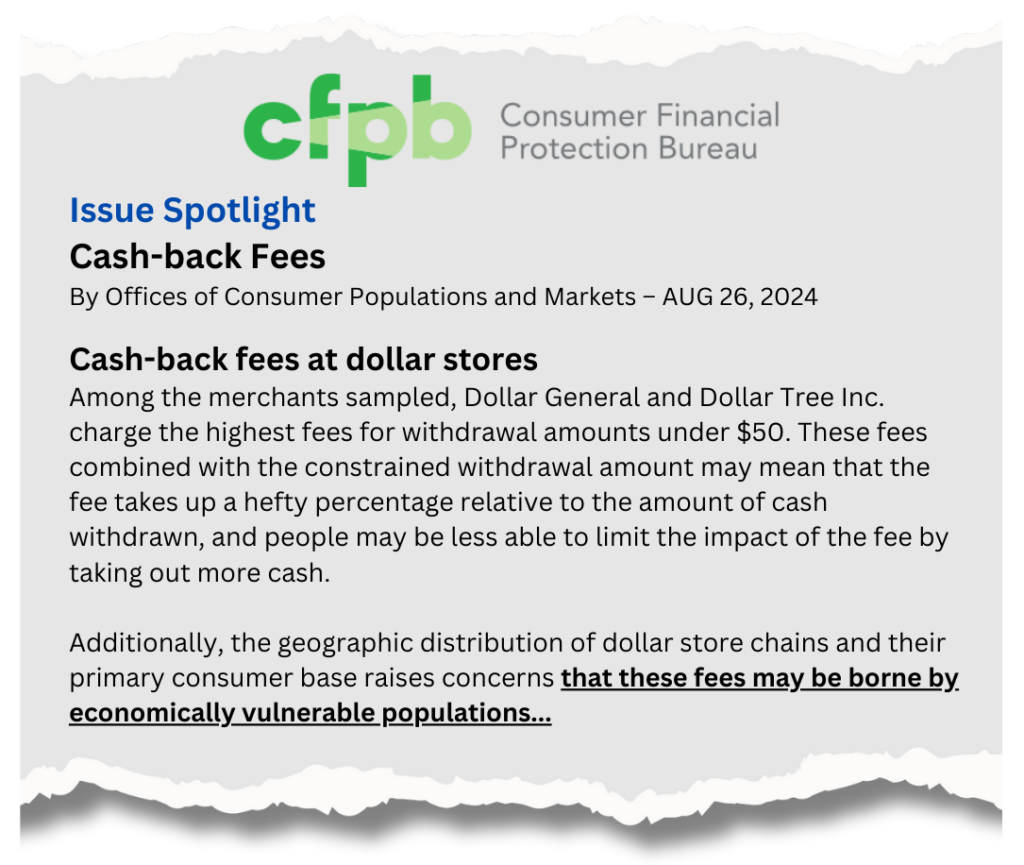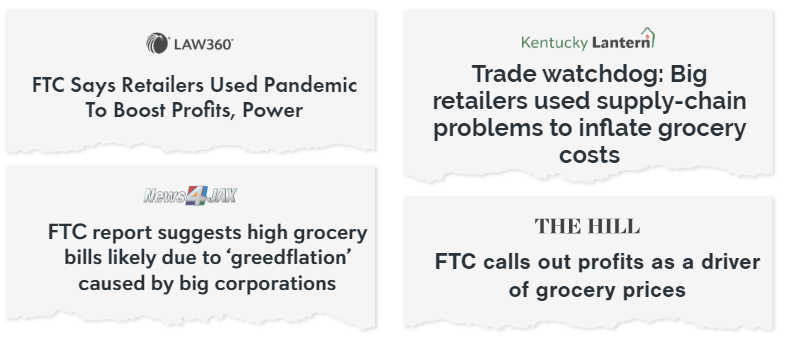CFPB: Some Large Retailers “May Be Exploiting” Vulnerable Customers with Cash-Back Fees
Date: August 27, 2024
Media Contact:
Nick Simpson
Nick@electronicpaymentscoalition.org
WASHINGTON, DC — A new report this week by the Consumer Financial Protection Bureau (CFPB) found three large retail conglomerates – Dollar General, Dollar Tree, and Kroger–which operates Family Dollar, Harris Teeter, Ralph’s, and other businesses–charged consumers more than $90 million in fees annually for cash-back from debit or prepaid card purchases. Many of the customers paying these fees were from “economically vulnerable populations.”

The CFPB is just the latest regulator calling out corporate mega-stores for increasing prices on consumers. The Federal Trade Commission recently reported grocery conglomerates, like Kroger, took advantage of supply chain disruptions during the COVID pandemic to increase profits.
The report noted the increase in profits cast “doubt on the assertions of some companies that rising prices at the grocery store are the result of retailers’ own rising costs.“

FTC Chair Lina Khan went on to say, “dominant firms used this moment to come out ahead at the expense of their competitors and the communities they serve.”
Unlike at the ATM, the CFPB noted customers can spread the cost of a transaction over a larger withdrawal, and ATM costs are more equally distributed across incomes. Cash-back fees charged by the retailers–who collected $90 million annually from such fees–are predominantly borne by those most at financial risk.
The CFPB even found these retailers benefit from offering cash-back because of the associated costs of handling cash. The report stated, “dispensing cash to consumers, such as through cash-back transactions, reduces merchants’ supply of cash and therefore also reduces their cost of handling, transporting, and depositing excess cash.“